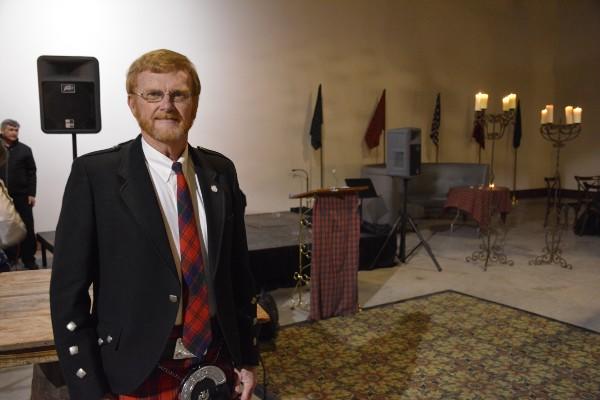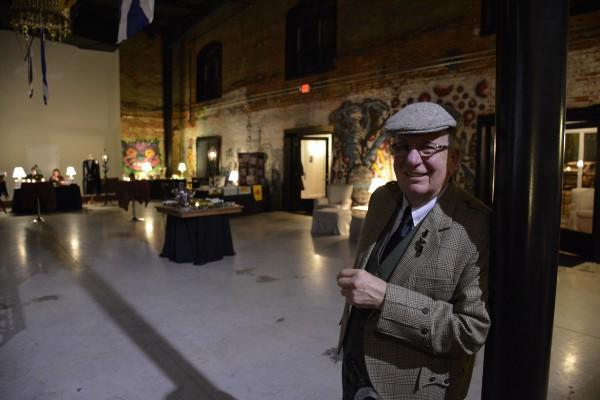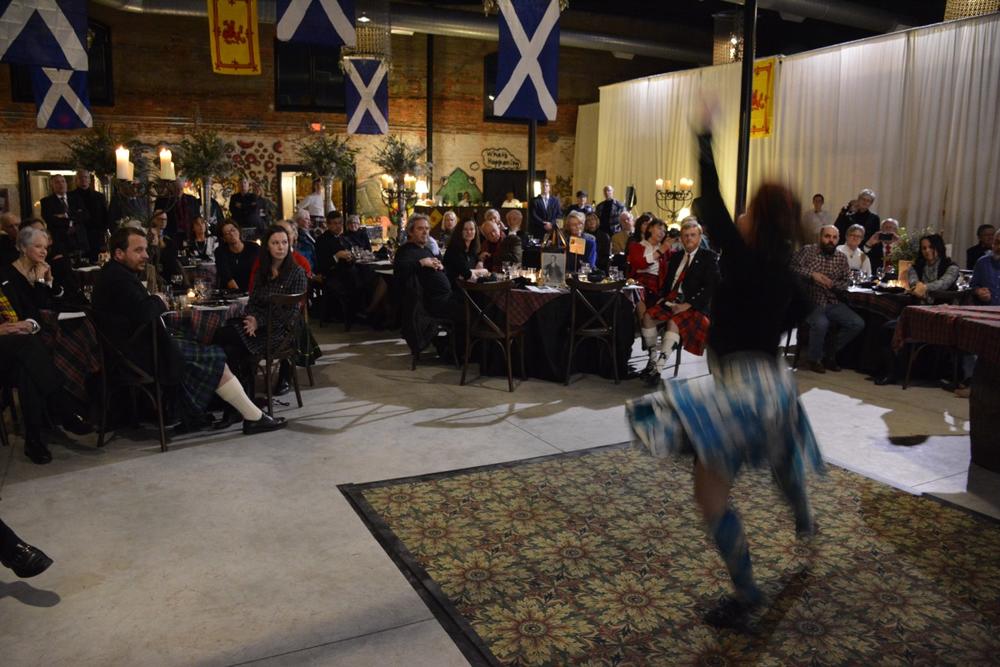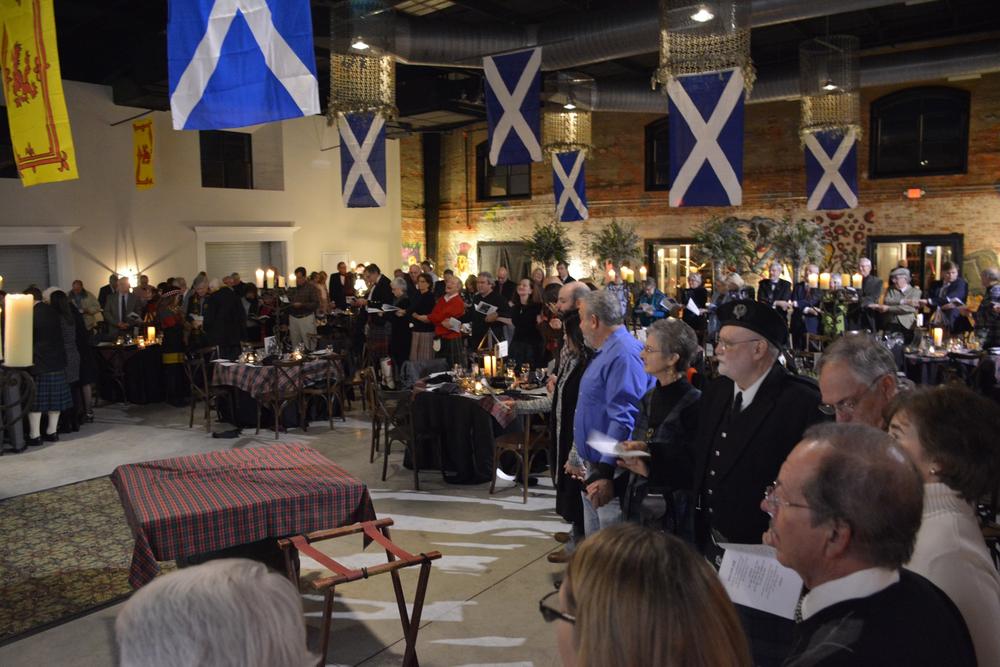Section Branding
Header Content
Still Toasting To Robert Burns After All These Years
Primary Content
Scottish poet Robert Burns died more than 200 years ago, but his work is still cause for celebration.
Each year in late January, around his birthday, fans of the poet hold dinner parties in his honor. The gatherings, called Burns Suppers, are held all around the world.
On a recent Saturday, a group in Athens took part in the tradition by hosting their own supper.
Tartan plaid covered the Athens Cotton Press, an old industrial building converted into a banquet hall. It was on the tablecloths, the flags that lined the room, and the guests.
Men in kilts and women in scarves entered to jaunty Celtic music. Some headed to the cash bar for glasses of whisky, others checked out the slideshow projecting lines of verse on the wall.
Then, came the bagpipes. They signaled the start of this evening’s celebration of the life and work of Robert Burns.
The first Burns Supper was held in 1801, five years after Burns died, and they’ve been happening ever since. While the dinners take a standard form, there’s no central body organizing them. The events are grassroots, put together by people all over the world with a love for Scotland’s bard.
Ian Hardin said the suppers help him celebrate his Scottish heritage.
“I grew up with Robert Burns, because my mother was Scottish. He embodies the soul of Scotland. I think that’s the way to put it,” he said.
He’s a retired chemist and the man behind the night’s 140 seat dinner. That made him the emcee and gave him the honor of reading Burns’ ode to perhaps the dinner’s most honored guest: the haggis.
“But if you wish her grateful prayer, give her a haggis!” Hardin read.
Haggis, in case you don’t know, is a mixture of sheep’s organs, oatmeal, and spices boiled in a sheep’s stomach. It’s not fine dining, but Burns’ poem does what many of his works do: elevate the everyday.
The haggis sat at the end of the buffet line, where it was served with a Southern twist: on buttered saltine crackers. There was also mock-haggis wrapped in filo dough and other takes on traditional Scottish fare.
“We have cock-a-leekie soup, neeps and potatoes with turnips, and rutabagas,” said Lee Epting, the man behind the night’s food. “Oh, the mushy peas. That’s just what it says: mushed-up peas. We put a little cream in them. It makes them a little better.”
The mock-haggis was Epting’s idea. “I’m sorry for all you Scots out there, but [it’s] far better than the real thing,” he said.
Epting said he’s not much of a Burns aficionado, though he’s hoping to learn more. For him, the suppers are a great excuse to throw a party.
After dinner, came more entertainment. There was bagpiping and highland dancing, toasts among the sexes, and more of Burns’ poetry.
“The best laid schemes o’ Mice an’ Men / Gang aft agley, / An’ lea’e us nought but grief an’ pain, / For promis’d joy!” a reader recited in Scots dialect from Burns’ poem “To A Mouse.”
There was a short lecture on Burns’ life and work from Elizabeth Kraft, who teaches English at the nearby University of Georgia. “People are just moved, and they recognize themselves, I think, in the poetry,” she said.
Kraft said that feeling’s not exclusive to people with Scottish heritage, but open to anyone who connects with Burns’ work. Burns was also just a regular guy, with regular faults, and Kraft said that’s another part of his appeal.
“There’s just something about the way he’s so honest about his limitations, his failings, that kind of connects us. It’s very very human. I think that’s the thing that will always touch people,” she said.
Like all Burns Suppers, this one ended in song. With some gentle goading, guests stood, joined hands, and started singing Burns’ familiar tune, “Auld Lang Syne.”
The song asks whether it’s worthwhile to celebrate the past. The answer, at least for these Burns Supper attendees, sounded like a resounding yes.






